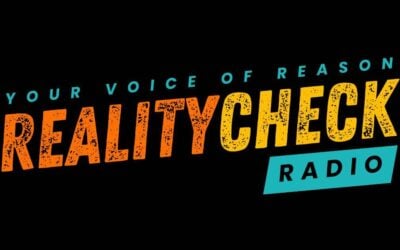The quality of research published in medical journals on public health is abysmal. The CPRC will occasionally publish comments on this research.
In this case, the full title of the paper by Garen J. Wintemute is “Support for a Comprehensive Background Check Requirement and Expanded Denial Criteria
for Firearm Transfers: Findings from the Firearms Licensee Survey.” A copies of the article is available here and here and the abstract is as follows:
ABSTRACT Federal and state policies on eligibility to purchase and possess firearms and background check requirements for firearm transfers are undergoing intensive review and, in some cases, modification. Our objective in this third report from the Firearms Licensee Survey (FLS) is to assess support among federally licensed firearms retailers (gun dealers and pawnbrokers) for a background check requirement on all firearm transfers and selected criteria for denying the purchase of handguns based on criminal convictions, alcohol abuse, and serious mental illness. The FLS was conducted by mail during June–August, 2011 on a random sample of 1,601 licensed dealers and pawnbrokers in 43 states . . . . Support was positively associated with many establishment characteristics, including sales of inexpensive handguns, sales that were denied when the purchasers failed background checks, and sales of firearms that were later subjected to ownership tracing, and were negatively associated with sales at gun shows. Support for three existing and nine potential criteria for denial of handgun purchase involving criminal activity, alcohol abuse, and mental illness exceeded 90 % in six cases and fell below 2/3 in one. Support again increased with sales of inexpensive handguns and denied sales and decreased with sales of tactical (assault-type) rifles. In this survey, which was conducted prior to mass shootings in Aurora, Colorado; Oak Creek, Wisconsin; Newtown, Connecticut; and elsewhere, licensed firearm sellers exhibited moderate support for a comprehensive background check requirement and very strong support for additional criteria for denial of handgun purchases. In both cases, support was associated with the intensity of respondents’ exposure to illegal activities.
Here is part of a letter that C. Bret Jessee, PhD sent me. Wintemute never mentions the most obvious interpretation of his survey: that firms like to have their competitors regulated out of operation. The Journal of Urban Health apparently never responded to the author.
. . . In his latest publication, “Support for a Comprehensive Background Check Requirement and Expanded Denial Criteria for Firearms Transfers: Findings from the Firearms Licensee Survey”, [GJ Wintemute] makes conclusions on support for more rigorous firearms sales regulations based on a survey of federally licensed firearms dealers. Firearms dealers are engaged in the business of sale of goods for profit, and it might come as no surprise that they would support regulations that restrict the claimed 40% of sales that are facilitated by other than Federal Firearms License (FFL) dealers, so that they can profit from all firearms transactions. One can envision a Car Dealer Survey demonstrating support for eliminating all person-to-person private sales of cars to that car dealers can profit from all car transactions. Reliance on a biased population severely limits the utility of the FLS.
Many of the statistics presented in his publication, such as the 40% privates sales that occur without background checks and the 150,000 background check denials, have been disputed. Dr J Lott concludes that the number of such sales is about four times lower and has clarified the background check denial rate by adding that ~95% of initial denials were quickly reversed, with only dozens of convictions for illegal firearms transfers. While the media potentiate one side of the story, certainly Dr. Wintemute is aware of these alternative analyses, and should at least refer them as statistics in dispute, rather than as accepted facts. Much of this debate occurs in the non-peered reviewed public literature, some of which Dr. Wintemute has found cause to reference in support of his work, and thus opening the door for the validity of referencing such literature addressing both sides of the issues at hand.
I might note that two surveys of National Rifle Association (NRA) members, one funded by a gun control advocacy organization and one funded by a gun rights advocacy organization, yielded opposite results. Dr. Wintemute’s reference to the one survey suggesting NRA members supported added gun controls without reference to the other survey extends the impression that gun owners and gun dealers both support comprehensive background checks. He makes passing mention to the caveat that gun dealers opposing added gun controls might simply have tossed the FLS survey in the trash, as the 63.1% non-response rate might suggest. Wasn’t the sample size powered to a 60% response rate minimum? . . .




0 Comments